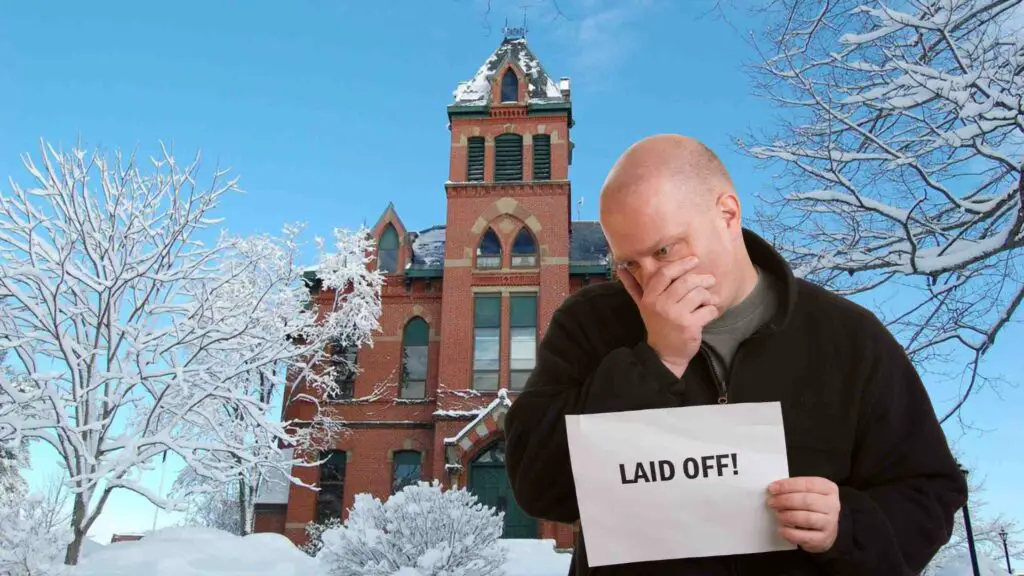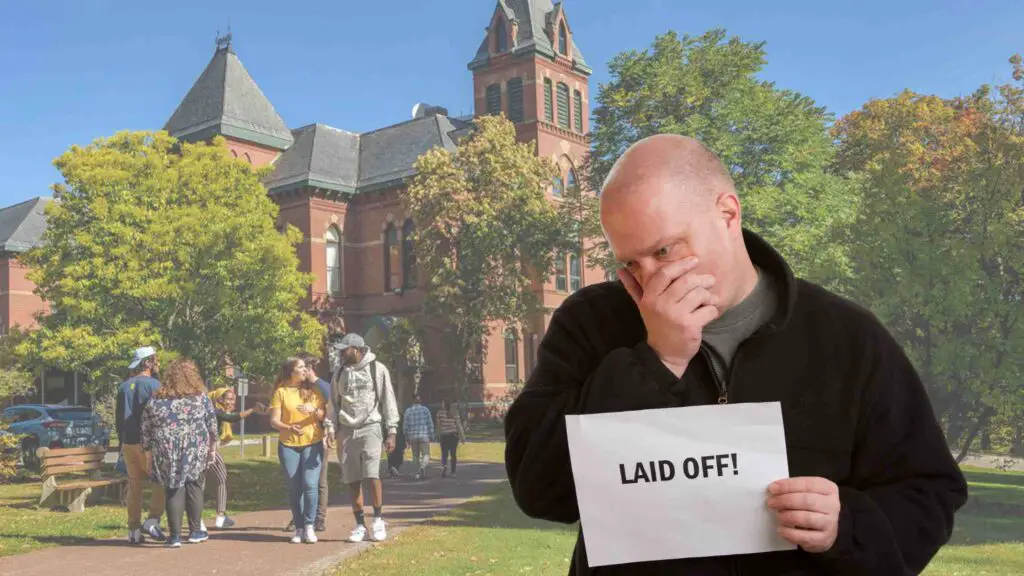The University of Southern Maine (USM) is a public university with campuses in Gorham, Portland, and Lewiston. It is the southernmost campus in the University of Maine System.
The University of Southern Maine (USM) reported layoffs on May 14, 2024, in a letter from President Jacqueline Edmondson. USM is laying off several employees as it continues to struggle financially.
The specific number of layoffs was not specified in the letter. However, Edmondson noted that USM would discontinue the Russell Scholars project and lay off specific management staff. The layoffs take effect on May 17, 2024. In this article, let us explore USM layoffs more.
DiscontinuedNews is impartial and independent, and every day, we create distinctive, world-class programs, news, and content that inform, educate and entertain millions of people worldwide.
IS USM struggling financially?
The seven-university system is dealing with declining enrollment and state funding that has yet to keep up with inflation. It also experienced concerns about its chancellor’s leadership. A nearly complete hiring freeze, budget cuts, and restricted travel occurred. Thus, the University of Southern Maine is reducing its expenses.
In a message to the school community in June 2023, USM President Jacqueline Edmondson stated that the university’s future is bright. But she added, There are difficulties.
The letter from the USM president comes at a time when the state’s public universities are facing a systemwide crisis. Maine’s state university system consists of USM and six other schools. It continues to struggle financially as decades of flat investment relative to inflation catch up with it. Also, a multiyear drop in enrollment caused by
- declining affordability,
- growing apathy about the value of a college degree,
- the COVID-19 pandemic, and
- a shrinking young population.
Although the dollar amount granted by the state has increased year after year, it has not kept pace with inflation. The state’s share of the system’s general budget has dropped drastically. In 1972, the state funded almost 70% of the university system’s finances, with tuition covering the other 30%.
State funds and tuition account for roughly 43% of the system’s costs. Revenues from food, housing, conferences, and athletics cover the balance of the system’s general expenses.
Meanwhile, enrollment has dropped, making up an essential part of the system’s revenue. At the same time, the system’s costs are rising due to inflation and other budgetary concerns.
The UMaine System’s situation is familiar. Across the country, public university systems are dealing with similar financial, social, and demographic issues. Some have even closed entire campuses.
Many people are concerned about these patterns. Educators and others believe that high-quality, easily accessible colleges and universities are vital for societal equity, learning, and economic growth.
USM’s strategic plan
The UMaine System Board of Trustees approved a five-year strategic plan in the summer of 2023. This describes its future aims in broad strokes. The system intends to avoid severe steps such as campus closures. Instead, leaders will try to rectify
- declining enrollment trends,
- boost efficiency, and
- attract new students.
The plan outlines broad objectives, leaving the specifics to be filled out later. However, it depends mainly on doubling down on recruitment initiatives and increasing outside funding. It also relies on remote learning, which the system has adopted since the pandemic began.
The system has invited each school to outline its plans for aligning with and supporting the systemwide strategic plan by October 1, 2023.
Layoffs at USM

On May 13, 2024, the University of Southern Maine announced that it would be laying off an unknown number of staff.
The letter did not specify the precise number of layoffs, and university officials did not say how many positions were being cut. However, according to Edmondson, USM will drop the Russell Scholars initiative and cut certain administrative posts. The layoffs take effect on Friday, May 17.
“I decided to reach out to share some difficult news,” Edmondson wrote. “The leadership team and I had to make difficult choices about how to evaluate the reallocation of finances. We have to strike a balance between the university’s priorities. We hope that these measures will set the university up for future expansion.”
The Russell Scholars program’s director and associate director posts have been dissolved. Management positions such as director of advising, graduate studies, and student engagement and leadership have also been eliminated.
The Russell Scholars initiative has been open to all first-year and transfer students. It includes
- academic coaching,
- specific core curriculum classes,
- a “guided exploration of career interests,” and
- on-campus living.
According to USM’s website, Russell Scholars is a “close-knit, friendly community that combines academic and social life. They promote a home away from home within the larger university.”
Edmondson wrote in an email to the Press Herald:
“We realize that this is hard for those directly affected, their teams, students, and our community. That is why we have done all that is possible to avoid position cuts until now.”
The University of Southern Maine has campuses in Gorham, Portland, and Lewiston and enrolls around 7,000 students. USM’s enrollment is down roughly 10% from five years ago.
USM, like many other colleges and universities across the country, is experiencing enrollment problems. To increase enrollment, the system launched a direct admissions pilot program. The program is enrolling students who have not formally applied. Nearly 300 students entered in 2023–24 through the direct admissions process, and system officials said they plan to expand it in the future.
Conclusion
Over the past few years, the financial situation has reduced extracurricular activities and programs, laid off tenured staff, and caused the loss of campus life. This has resulted in turbulence for the UMaine System, as seen by student sit-ins and faculty votes of no confidence in the system.
Chancellor Dannel Malloy and faculty members are concerned that further layoffs will occur in 2023. They worry that programs will be reduced and that campuses will lose individuality. Also, autonomy means that power is centralized between the system and the chancellor.
